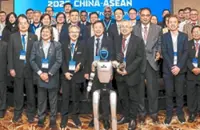Daron Acemoglu, a closely-watched voice in the debate about the future of artificial intelligence, has not bought into the excitement, or the fear, that has been generated by the rise of the Chinese AI startup DeepSeek.
The Massachusetts Institute of Technology economist, who won the Nobel Prize last year, acknowledges that DeepSeek’s latest AI product, R1, was an impressive achievement that appears to offer a cheaper and more efficient alternative to the models developed by US companies like OpenAI. But, Acemoglu said, the people who have been rushing to download R1 – just like those paying for OpenAI’s ChatGPT – are mostly "using it as a toy to explore it.”





